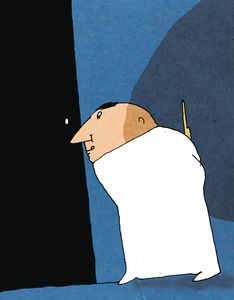Officials in the Unique Identification Authority of India would be tired of insisting that the leak and loss of Aadhaar data collected by many government and private organisations does not mean breach of security for biometric data collected from India’s residents. The latest is the theft of Aadhaar information of 60 lakh LPG customers of Indian Oil Corporation. Data that was painstakingly gathered by State Bank of India and other banks as well as by some state governments has also gone to data seekers. They come in different forms; first there are the marketing companies—ever hungry to get individual details, especially phone numbers and addresses of potential consumers; and then there are the anti-Aadhaar activists who are out to prove that data is not safe with the government.
At the height of the Aadhaar frenzy, banks, oil companies, telecom operators and government departments had made people submit photocopies of their Aadhaar cards and fill in individual details. Millions responded to this coercive drive, until a Supreme Court judgment specified where all Aadhaar details have to be submitted for availing benefits. When data leaked out of Aadhaar registration centres recording biometric data, the information technology ministry even registered cases against whistleblowers and investigative journalists.
But, the ardour has now cooled off in the ministry, even though there are statements of revamping the Aadhaar law to restore the overreach. The privacy issues have more to do with sharing of phone number and addresses for commercial purposes. The efforts to use Aadhaar data for police work has had mixed results so far.
But the passion for enduring everyone who had Aadhaar registration for identification purpose affected the home ministry’s national population register project. NPR registration was supposed to be foolproof as the registration was granted only to Indian citizens, making it as rigorous a process as obtaining the passport. This would have meant foreigners, especially the large numbers from Bangladesh and other south Asian countries would not be eligible. While P. Chidambaram as home minister in the UPA government had pushed the project, Aadhaar had more supporters, like prime ministers Manmohan Singh and Narendra Modi.
Ultimately, it was decided that those who had the Aadhaar card would have their names entered in NPR. Meanwhile, organisations that have collected millions of pages of self-attested photocopies of Aadhaar cards three years ago are disposing the paper stacks as those details have now been put into digital format.
sachi@theweek.in


